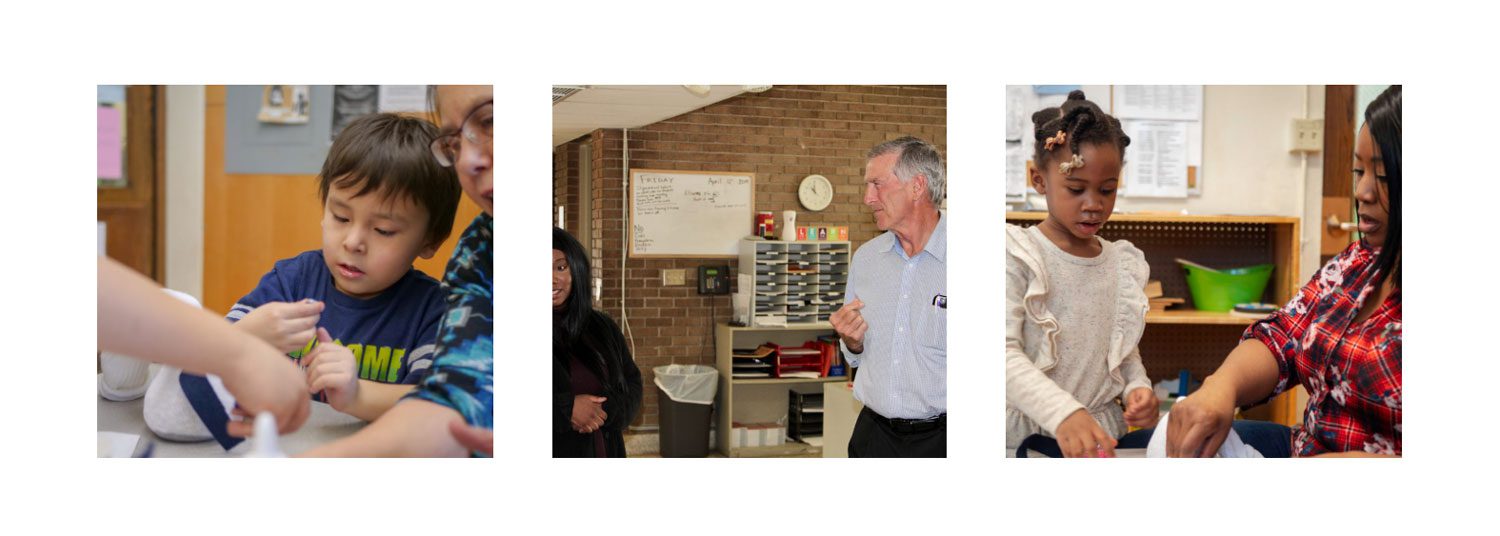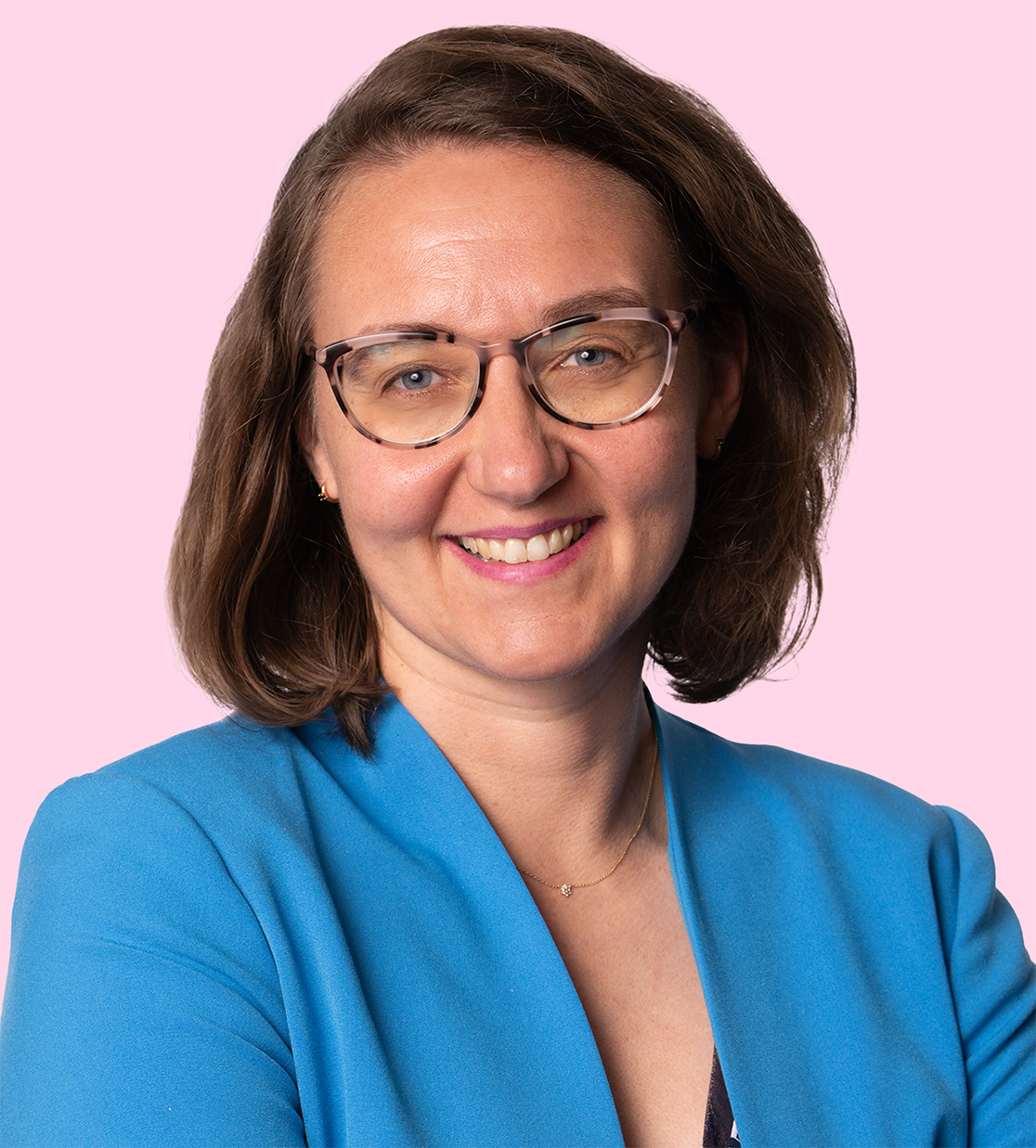Helping Kids Grow
Strong Brains

A gift from Martin and Beth Peyer is helping The Family Partnership develop a groundbreaking new program for preschoolers and their parents.
Martin and Beth Peyer have been passionate about education for a long time. For many years, they led a company that provides schools with web-based services and software. When the company was sold and they used some of the proceeds to establish a fund at the Minneapolis Foundation, they knew they wanted to use the money to make a difference for students.
Martin and Beth care deeply about Montessori education, but they quickly realized their charitable interests were broader. They wanted to help more children than just those who attend Montessori schools—and wanted to help them in a very specific way.

At a conference, Martin learned about something called executive function, a set of mechanisms in the brain that regulate things like your ability to break down tasks, solve problems, delay gratification, and manage emotions. Basically, “it’s the air traffic controller of the brain,” he said. Executive function is something we all need in order to learn and function in society, and it develops mostly in early childhood, before the age of 5. As he read papers and talked to experts, Martin became excited about new tools that researchers are developing to help children build strong executive function. He wanted to contribute to this work, and he especially wanted to help children who, because of trauma or instability at home, are more likely to need extra support to develop healthy brain architecture.
To find an organization engaged in this work, Martin turned to The Minneapolis Foundation. His Philanthropic Advisor consulted a colleague at the foundation, Patrice Relerford, who specializes in education, and she in turn helped arrange two site visits. That’s how Martin found out about The Family Partnership, a local nonprofit whose services include two preschools for children with developmental delays due to trauma. “Patrice was very connected with our work,” said Caroline Hood, The Family Partnership’s Vice President of Programs. “She knew everything that went into our therapeutic preschools, and everything we do beyond what standard preschools do to help families in poverty.”
The Family Partnership recently began a groundbreaking pilot project on executive function. The organization is working with the University of Minnesota to evaluate a new curriculum that The Family Partnership commissioned from Dr. Christine Wing, a speech pathologist specializing in linguistic approaches to executive function. The curriculum uses books, songs, and activities that are designed to help children improve self-regulation by increasing their use of words to describe their thoughts, feelings, and physical sensations. Researchers call these “internal state words,” and they include terms like “hungry,” “tired,” “happy,” and “sad,” said John Till, The Family Partnership’s Senior Vice President of Strategy and Innovation. “Before they know these words, they’re acting on impulses,” he said. “Once they have a word, they can do things like ask an adult for help.” Basically, he said, the new curriculum helps children learn to construct the kinds of narratives that we all need in order to make sense of our lives: “I was riding my bike. I fell. It hurt. I asked my mom for a Band-Aid.”
The Family Partnership also recognized the need to support whole families—not just kids—so they are piloting a companion curriculum to help parents recognize and reinforce the skills that their children practice at preschool. The approach resonates with Martin. “If you don’t help the whole family, you’re not really helping the whole kid,” he said.
After talking with organization’s staff, Martin identified a piece of the project that he wanted to fund: A new web-based tool called MEFS that University of Minnesota researchers Stephanie Carlson and Phil Zelazo have created to test executive function. The software is a simple game that anyone—adults or children—can take in five minutes. It’s easy and inexpensive to administer, and it can be taken repeatedly without affecting the quality of the results. To help The Family Partnership use the tool, Martin also paid to install WiFi at one of the preschools. “Martin understood that this pilot project couldn’t be successful without the right infrastructure,” Patrice said. “He made that investment without hesitation, and it’s already helped the staff in ways that go far beyond this one project.”
As for the pilot project itself, Hood said, “Without his gift, we would have no real way of measuring its impact.”
The initial results are promising, showing significant gains in the executive function of the children in the pilot. “Ultimately, we want to expand this and offer it to other preschools,” Hood said. “Everybody needs healthy executive function—not just high-needs kids—and this could be beneficial to everyone.”
Want to learn more about The Family Partnership’s work? Head to their website.


